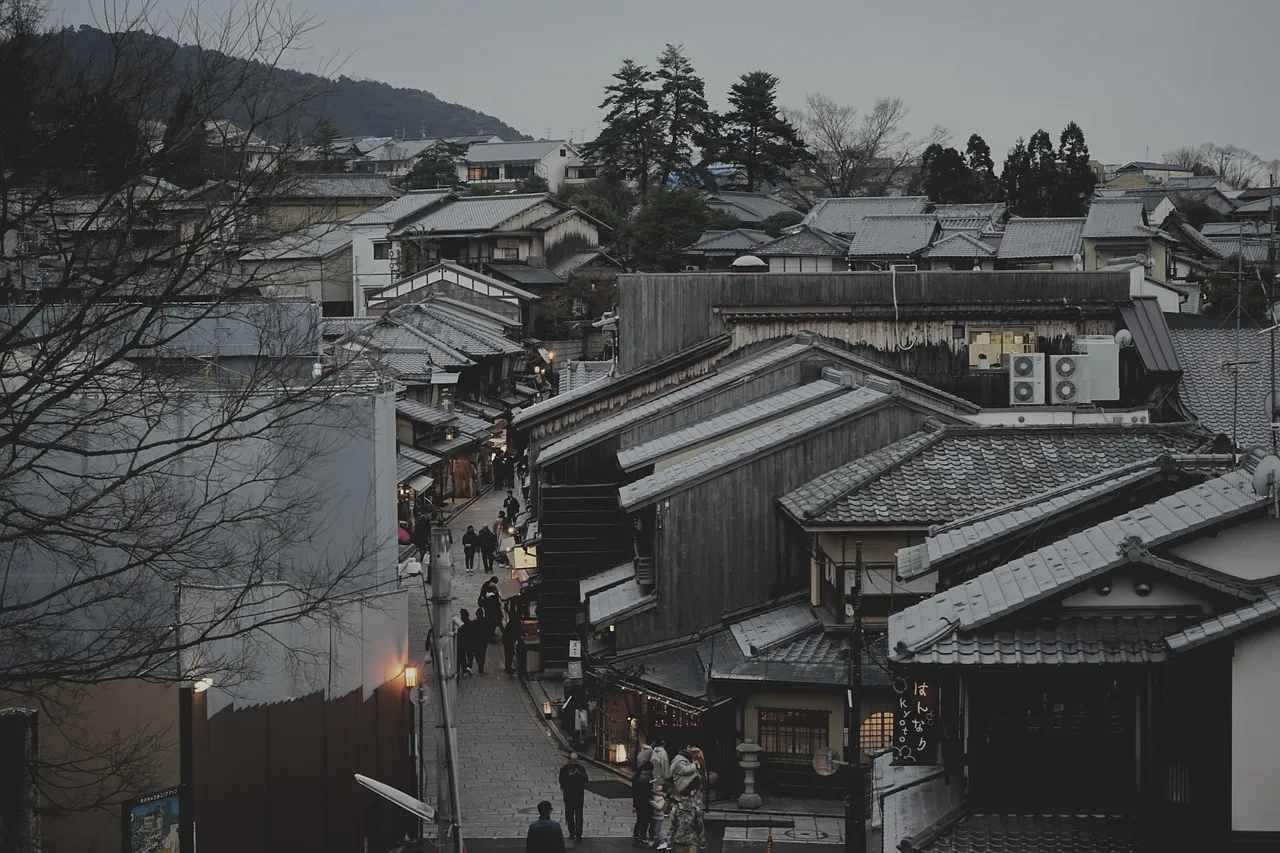Win a Free Trip to Japan!
Experience cherry blossoms and ancient temples
Kyoto, a city brimming with rich history and vibrant culture, invites travelers to explore its timeless charm. From the dazzling Golden Pavilion to the mystical Fushimi Inari Shrine, the allure of kyoto famous places never fades. Whether you’re wandering through serene bamboo groves or stepping back in time at ancient castles, every corner reveals a new story waiting to be discovered. Get ready to uncover the ultimate guide to Japan’s most enchanting destinations and experience moments that will stay with you forever!
Welcome to Kyoto: A City Steeped in History and Culture
Kyoto, often hailed as Japan’s cultural heart, invites you to step back in time while immersing yourself in breathtaking beauty and timeless traditions. As one of the kyoto famous places, this city enchants visitors with its exquisite temples, serene gardens, and vibrant geisha districts.
Why is Kyoto so special? Here are a few reasons:
- Historical Significance: Once the imperial capital of Japan for over a thousand years, Kyoto boasts more than 2,000 temples and shrines, many designated as UNESCO World Heritage Sites.
- Cultural Richness: The city thrives with traditional arts, tea ceremonies, and festivals that breathe life into its centuries-old customs.
- Scenic Beauty: From cherry blossom-lined avenues to tranquil bamboo groves, Kyoto’s landscapes offer a perfect harmony of nature and architecture.
| Aspect | Kyoto | Other Japanese Cities |
|---|---|---|
| Number of Temples | 2,000+ | Fewer than 1,000 |
| UNESCO Sites | 17 | Varied, typically fewer |
| Traditional Arts | Rich and actively preserved | More urbanized, modern focus |
Exploring Kyoto means uncovering layers of history woven into every street corner and garden path. Whether you’re a history buff or a curious traveler, the city’s unique blend of ancient and contemporary experiences promises an unforgettable journey. Embark on your adventure to discover the magic that makes Kyoto one of the most captivating kyoto famous places in the world!
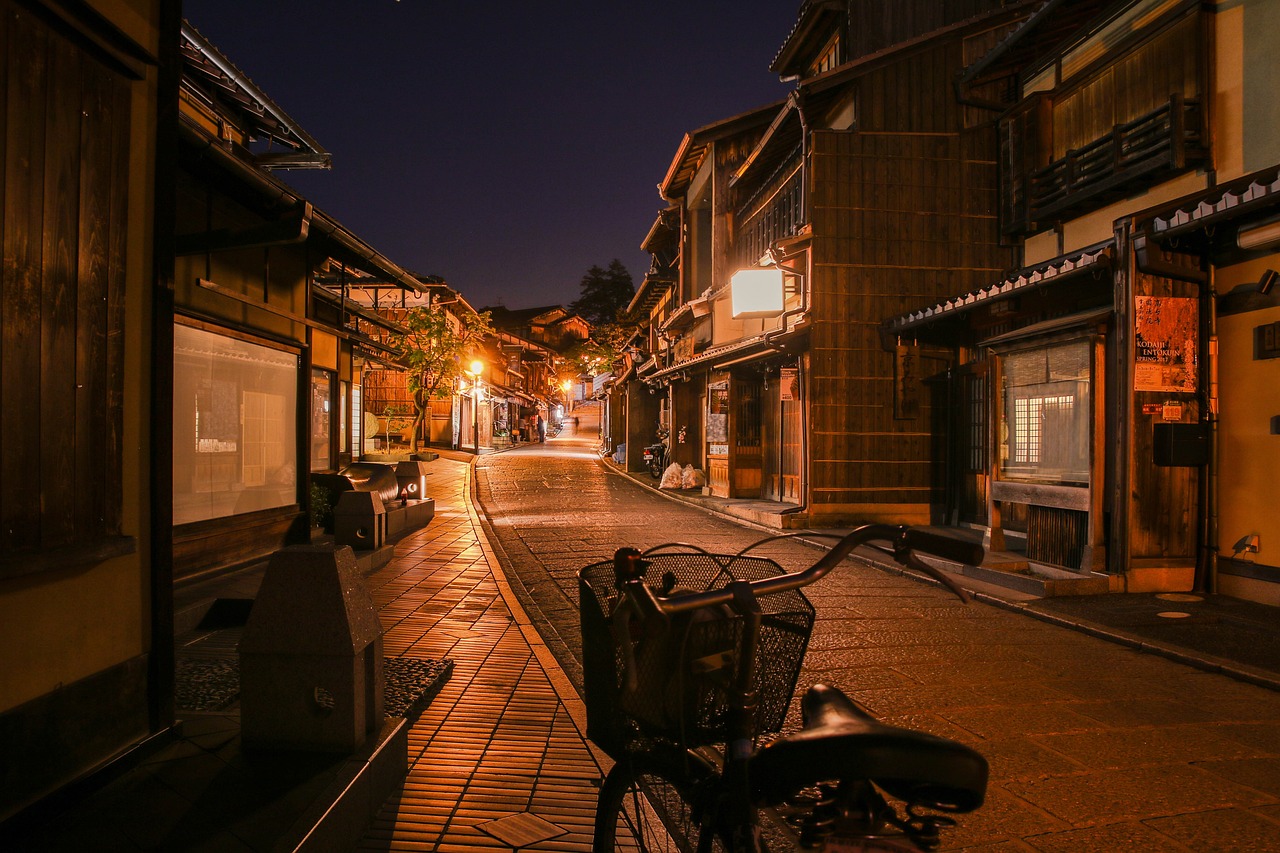
Exploring the Majestic Kinkaku-ji: The Golden Pavilion
One of the most iconic kyoto famous places, Kinkaku-ji, also known as the Golden Pavilion, captivates visitors with its breathtaking beauty and rich history. This stunning Zen Buddhist temple is covered in gold leaf, shimmering brilliantly against the backdrop of a serene pond and lush gardens. As you explore Kinkaku-ji, you’ll instantly understand why it remains a must-see destination in Kyoto.
Here’s what makes Kinkaku-ji so special:
- Architectural Wonder: The three-story pavilion combines different architectural styles, symbolizing the harmonious blend of religious and cultural influences.
- Stunning Surroundings: The surrounding gardens change dramatically with the seasons, offering vibrant cherry blossoms in spring and fiery foliage in autumn.
- Historical Significance: Originally built in the 14th century as a retirement villa for shogun Ashikaga Yoshimitsu, it transformed into a temple after his death.
Comparison: Kinkaku-ji vs. Ginkaku-ji (Silver Pavilion)
| Feature | Kinkaku-ji (Golden Pavilion) | Ginkaku-ji (Silver Pavilion) |
|---|---|---|
| Exterior Finish | Covered in gold leaf | Unpainted wood with silver accents |
| Architectural Style | Bold and ornate | Simple and rustic |
| Visitor Experience | Reflects opulence and luxury | Emphasizes wabi-sabi aesthetics |
Exploring Kinkaku-ji offers an unforgettable glimpse into Kyoto’s cultural grandeur and artistic heritage. Don’t miss the peaceful walk around the pond, where every angle provides a perfect photo opportunity!
Fushimi Inari Shrine: A Journey Through Thousands of Torii Gates
When exploring Kyoto famous places, Fushimi Inari Shrine stands out as an unforgettable experience. Renowned for its mesmerizing pathway lined with thousands of vibrant red torii gates, this shrine offers visitors a magical journey that blends cultural heritage with stunning natural beauty.
Located at the base of Mount Inari, the shrine is dedicated to Inari, the Shinto god of rice and prosperity. The iconic torii gates, donated by individuals and businesses, form a seemingly endless tunnel that leads hikers up the mountain. As you weave through these gates, you’ll discover:
- Peaceful forest trails perfect for reflection
- Small shrines and statues tucked away along the path
- Breathtaking views of Kyoto city from the summit
Comparing Fushimi Inari Shrine to other Kyoto famous places:
| Feature | Fushimi Inari Shrine | Kinkaku-ji (Golden Pavilion) | Arashiyama Bamboo Grove |
|---|---|---|---|
| Visual Impact | Thousands of bright red gates | Golden temple by a pond | Towering bamboo stalks |
| Hiking Opportunity | Yes, up Mount Inari | No | Light walking |
| Cultural Significance | Shinto worship, prosperity | Zen Buddhism | Natural tranquility |
Visiting Fushimi Inari Shrine is a unique cultural immersion. Whether you’re a casual traveler or an adventure seeker, this breathtaking site promises an authentic slice of Kyoto’s spiritual heritage. Make sure to wear comfortable shoes and bring your camera to capture this symbolic corridor, one of the most iconic Kyoto famous places!
The Tranquil Beauty of Arashiyama Bamboo Grove
Among the many Kyoto famous places, the Arashiyama Bamboo Grove stands out as a breathtaking natural wonder that captivates visitors from around the globe. Walking through this towering bamboo forest feels like stepping into another world—a serene haven where the gentle rustling of bamboo leaves creates a soothing soundtrack for your journey.
What makes the Arashiyama Bamboo Grove so special? Here are a few highlights:
- Majestic Bamboo Stalks: The groves are filled with miles of vibrant green bamboo that stretch up to 20 meters (65 feet) high, creating an awe-inspiring canopy overhead.
- Unique Atmosphere: The sunlight filtering through the dense bamboo creates an ethereal glow, enhancing the peaceful ambiance.
- Photographer’s Dream: The striking vertical lines and lush greenery offer endless opportunities for stunning, Instagram-worthy shots.
Comparing Kyoto Famous Places: Arashiyama Bamboo Grove vs. Kinkaku-ji
| Feature | Arashiyama Bamboo Grove | Kinkaku-ji (Golden Pavilion) |
|---|---|---|
| Nature Experience | Immersive bamboo forest walk | Ornate temple with reflective pond |
| Atmosphere | Calm, serene, and mystical | Majestic, regal, and iconic |
| Best Time to Visit | Early morning for fewer crowds | All seasons, especially winter |
In summary, if you’re seeking tranquility and a deep connection with nature while exploring Kyoto famous places, the Arashiyama Bamboo Grove should be at the top of your list. It offers a peaceful retreat that blends natural beauty with spiritual calmness, making your Kyoto adventure truly unforgettable.
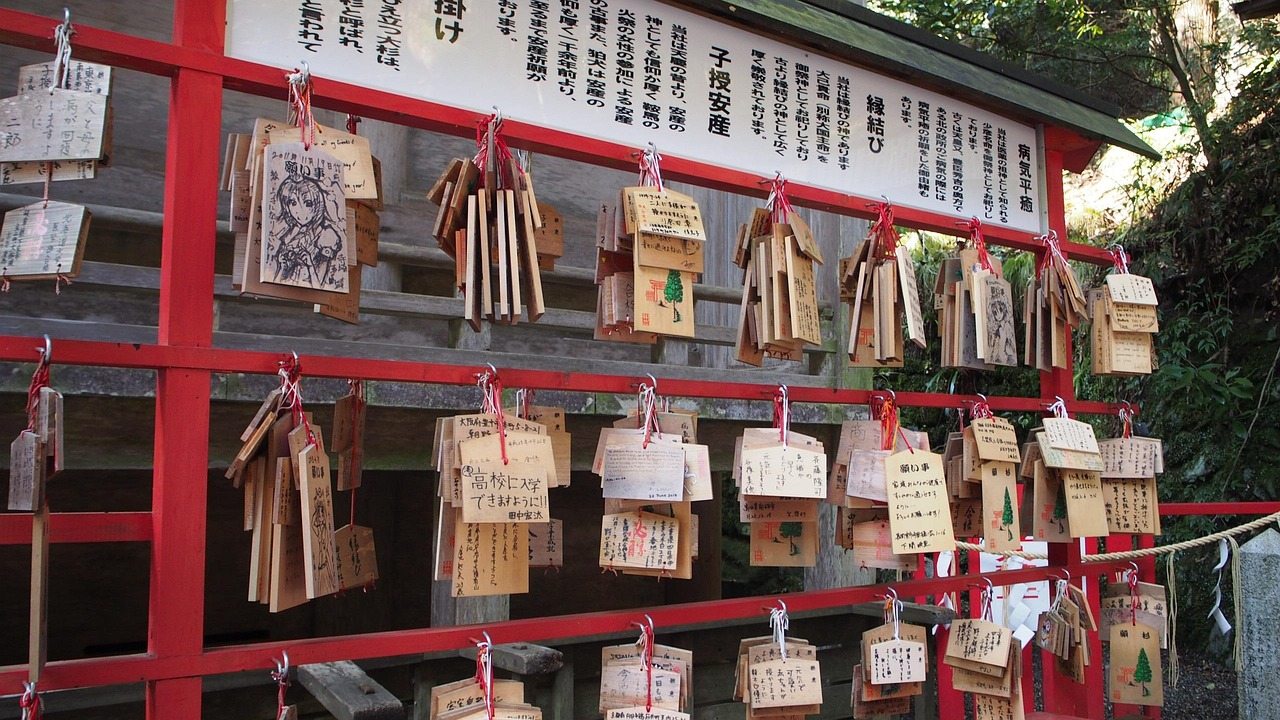
Discovering the Historic Charm of Gion District
When exploring kyoto famous places, the Gion District stands out as a must-visit destination. This enchanting neighborhood perfectly encapsulates Kyoto’s rich cultural heritage and offers a unique glimpse into Japan’s traditional arts. Unlike other bustling areas, Gion retains an old-world atmosphere where historic streets lined with wooden machiya houses invite visitors to step back in time.
Here’s why Gion District is so captivating:
- Geisha and Maiko Sightings: Gion is renowned for its geisha culture. Strolling through Hanamikoji Street, you might spot geishas and their apprentices, known as maikos, gracefully moving to their appointments.
- Traditional Tea Houses: The district boasts numerous tea houses offering authentic tea ceremonies, ideal for immersing yourself in Japanese customs.
- Historic Architecture: The wooden buildings and narrow alleyways reflect the Edo-period charm, making it perfect for photography enthusiasts.
- Evening Strolls: As night falls, lanterns illuminate the streets, creating a magical ambiance unlike anywhere else in Kyoto.
| Feature | Gion District | Other Kyoto Areas |
|---|---|---|
| Traditional Atmosphere | Preserved Edo-period aesthetics | More modernized districts |
| Cultural Experience | Geisha culture and tea ceremonies | Temples and shrines |
| Nightlife | Quiet, atmospheric lantern-lit strolls | Bustling urban scenes |
In summary, the Gion District offers a rare and authentic cultural experience, making it an essential stop when exploring kyoto famous places. Whether you’re fascinated by history, eager to witness geisha traditions, or simply want to soak up timeless beauty, Gion delivers an unforgettable journey.
Marvel at the Serenity of Ryoan-ji Zen Garden
Among Kyoto famous places, the Ryoan-ji Zen Garden stands out as a masterpiece of minimalist design and profound serenity. Nestled within the grounds of a Zen Buddhist temple, this rock garden captivates visitors with its simplicity and deep symbolism.
What makes Ryoan-ji so special? The garden features 15 carefully placed rocks set amidst a sea of white gravel, raked meticulously to create rippling patterns resembling water. Interestingly, no matter where you stand, you can only see 14 of the 15 stones at once, inviting contemplation and reflection on the elusive nature of perfection.
Visitors find Ryoan-ji’s tranquil ambiance ideal for:
- Meditation and mindfulness practice
- Experiencing traditional Japanese aesthetics
- Enjoying a peaceful escape from Kyoto’s bustling streets
When compared to other Kyoto famous places like the vibrant Fushimi Inari Shrine or the lush Arashiyama Bamboo Grove, Ryoan-ji offers a uniquely serene atmosphere. Here’s a quick comparison:
| Feature | Ryoan-ji Zen Garden | Fushimi Inari Shrine | Arashiyama Bamboo Grove |
|---|---|---|---|
| Atmosphere | Calm, contemplative | Energetic, spiritual | Natural, immersive |
| Main Attraction | Zen rock garden | Thousands of red torii gates | Towering bamboo stalks |
| Best For | Meditation, photography | Hiking, cultural exploration | Nature walks, relaxation |
In essence, a visit to Ryoan-ji allows you to pause, marvel at simplicity, and soak in a timeless zen experience — truly a must-visit among Kyoto famous places!
Unveiling the Splendor of Kiyomizu-dera Temple
When exploring Kyoto famous places, Kiyomizu-dera Temple stands out as an absolute must-visit. This iconic temple, founded in 780 AD, offers visitors a breathtaking combination of history, spirituality, and panoramic views of Kyoto.
What makes Kiyomizu-dera truly spectacular is its remarkable wooden stage that juts out over the hillside. From this vantage point, you can enjoy stunning vistas of cherry blossoms in spring, vibrant autumn leaves, and the sprawling cityscape. The temple’s architecture itself is an impressive feat—built without the use of nails, showcasing traditional Japanese craftsmanship at its finest.
Key highlights of Kiyomizu-dera Temple include:
- Main Hall (Hondo): Home to the revered statue of Kannon, the goddess of mercy.
- Otowa Waterfall: Where visitors drink from three streams believed to grant longevity, success, and love.
- Jishu Shrine: Dedicated to love and matchmaking, perfect for those seeking romantic blessings.
Here’s a quick comparison to other Kyoto famous places:
| Feature | Kiyomizu-dera Temple | Fushimi Inari Shrine | Arashiyama Bamboo Grove |
|---|---|---|---|
| Main Attraction | Historic wooden stage & views | Thousands of Torii gates | Towering bamboo forest |
| Best Time to Visit | Spring & Autumn | Year-round | Early morning |
| Spiritual Significance | High | High | Moderate |
Visiting Kiyomizu-dera is more than sightseeing—it’s a deep cultural experience that immerses you in Kyoto’s timeless charm. Don’t miss the chance to witness this majestic temple on your Kyoto adventure!
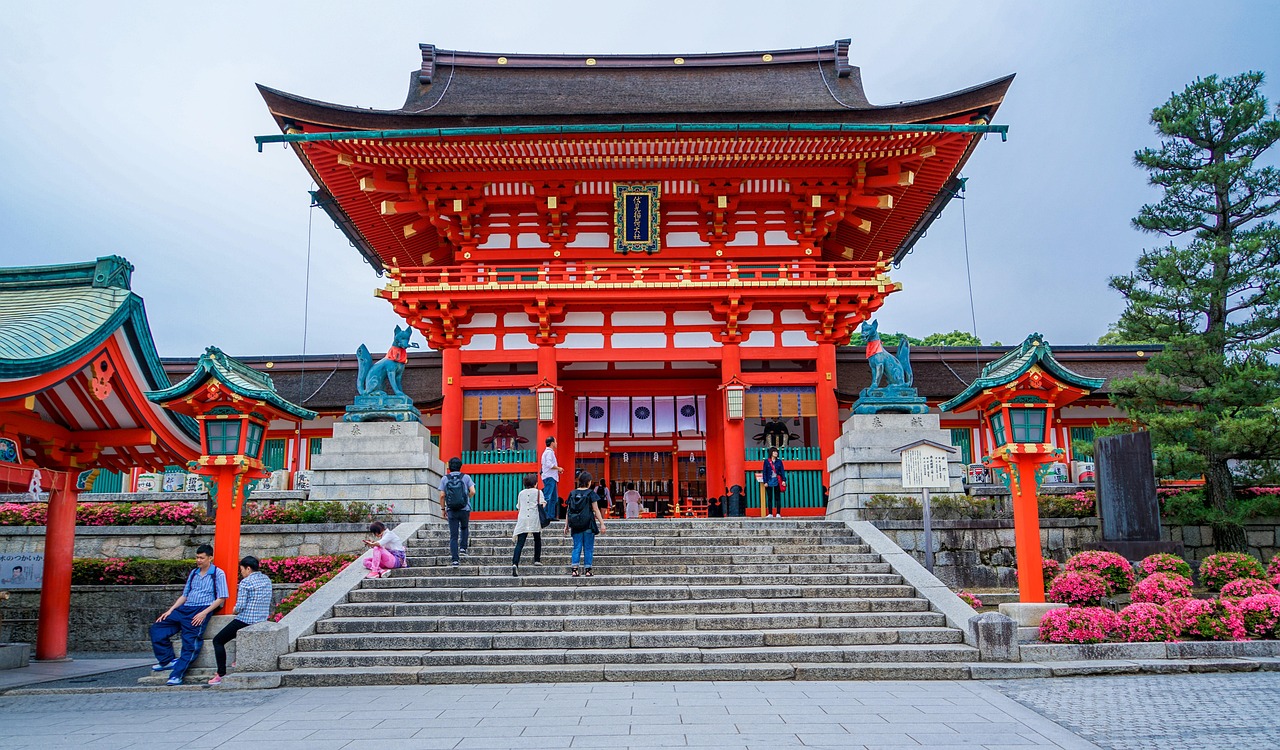
Strolling Through Nishiki Market: Kyoto’s Culinary Wonderland
When it comes to kyoto famous places that showcase the city’s vibrant culinary scene, Nishiki Market stands out as an absolute must-visit. Often called Kyoto’s Kitchen, this bustling market stretches for five blocks and offers travelers a lively glimpse into traditional Japanese food culture.
As you stroll through Nishiki Market, you’ll encounter:
- Fresh seafood stalls selling everything from glistening fish to octopus skewers.
- Local delicacies like yuba (tofu skin), pickled vegetables, and Kyoto-style sweets.
- Street food vendors serving quick bites such as taiyaki (fish-shaped cakes) and mochi.
- Specialty shops offering Japanese knives, ceramics, and tea, perfect for souvenirs.
What makes Nishiki Market unique among kyoto famous places is its seamless blend of old-world charm and contemporary flair. Unlike other historical spots, here you can savor Kyoto’s flavors with all five senses — from the salty aroma of grilled eel to the vibrant colors of fresh produce.
| Feature | Nishiki Market | Other Kyoto Markets |
|---|---|---|
| Length | 5 blocks | Usually smaller |
| Variety | Over 100 shops and stalls | Fewer specialty shops |
| Atmosphere | Lively, vibrant, bustling | More traditional, quieter |
| Culinary Experience | Diverse street food and fresh products | Mainly produce markets |
Whether you’re a foodie or a cultural enthusiast, Nishiki Market invites you to taste the heart of Kyoto in one unforgettable stroll — a true highlight among kyoto famous places!
A Day at Nijo Castle: Where Shoguns Once Ruled
Stepping into Nijo Castle is like traveling back in time to the Edo period, where Japan’s shoguns wielded power and influence. As one of the must-visit kyoto famous places, Nijo Castle offers a fascinating glimpse into feudal Japan’s political and architectural grandeur.
Why Visit Nijo Castle?
- Historical Significance: Built in 1603, this UNESCO World Heritage site served as the Kyoto residence of Tokugawa Ieyasu, the first shogun of the Edo period.
- Architectural Marvel: The castle features stunning structures such as the Ninomaru Palace, famous for its “nightingale floors” that chirp when walked upon, designed to warn against intruders.
- Beautiful Gardens: Surrounding the castle are beautifully landscaped gardens, perfect for a serene stroll, showcasing seasonal flowers and traditional Japanese design.
A Quick Comparison: Nijo Castle vs. Other Kyoto Famous Places
| Feature | Nijo Castle | Kinkaku-ji | Fushimi Inari Shrine |
|---|---|---|---|
| Historical Focus | Samurai and Shogun Era | Zen Buddhism & Architecture | Shinto Religion & Gates |
| Architecture Style | Castle and Palace | Golden Pavilion | Vermilion Torii Gates |
| Best For | History buffs | Photographers | Hikers and Spiritual Seekers |
Spending a day at Nijo Castle allows visitors to walk through history, admire exquisite craftsmanship, and enjoy tranquil landscapes—all in one captivating destination. It’s truly a cornerstone among kyoto famous places that you shouldn’t miss!
Experience Traditional Tea Ceremonies in Kyoto
Immersing yourself in traditional tea ceremonies is an unforgettable way to connect with Kyoto’s rich cultural heritage. Among the kyoto famous places, tea houses offer serene settings where ancient rituals unfold, inviting visitors to experience Japan’s art of hospitality and mindfulness.
Why should you include a tea ceremony in your Kyoto itinerary? Here are the highlights:
- Authentic Atmosphere: Set in historic tea houses or tranquil gardens, each ceremony offers a peaceful retreat from bustling city life.
- Cultural Insight: Learn about the intricate preparation of matcha (powdered green tea) and the philosophy behind “chado” or “the way of tea.”
- Interactive Experience: Participate in the careful movements and gestures that have been passed down through centuries.
- Delicious Treats: Complement your tea with traditional Japanese sweets (wagashi) that balance the tea’s bitterness perfectly.
To help you choose the best tea ceremony experience, consider this comparison:
| Tea Ceremony Venue | Atmosphere | Duration | Price Range | Accessibility |
|---|---|---|---|---|
| Camellia Garden | Garden setting, intimate | 60 mins | Moderate | Easily accessible |
| En Tea House | Historic, traditional | 45 mins | Affordable | Near central Kyoto |
| Ippodo Tea Ceremony | Educational, formal | 90 mins | Premium | Offers English guidance |
Ultimately, attending a tea ceremony in Kyoto will deepen your appreciation for Japan’s timeless traditions and elevate your travel experience. Make sure to book in advance to secure your spot at one of these captivating kyoto famous places!
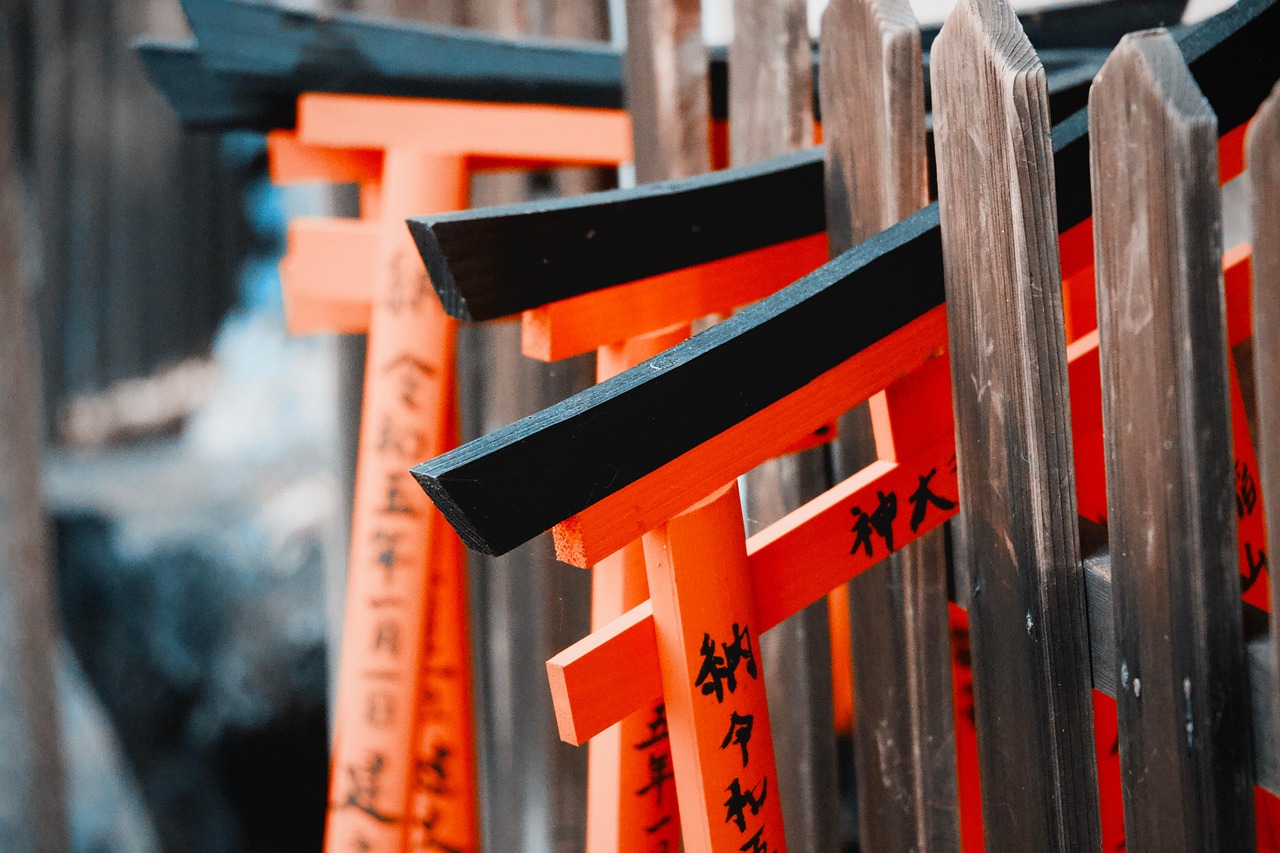
Tips for Making the Most of Your Kyoto Adventure
When exploring Kyoto famous places, preparation is key to unlocking the city’s full charm and magic. Here are some essential tips to help you maximize your Kyoto adventure:
Plan Ahead but Stay Flexible
- Prioritize top sights: Kinkaku-ji, Fushimi Inari Shrine, and Arashiyama Bamboo Grove are must-visits.
- Allocate enough time: Avoid rushing—each destination deserves a few hours.
- Leave room for spontaneity: Some hidden gems appear when least expected.
Start Your Days Early
- Beat the crowds at popular sites by arriving early. For instance, Fushimi Inari Shrine is stunning at sunrise, while the peaceful morning hours enhance the charm of Ryoan-ji Zen Garden.
Use Public Transportation Smartly
- Kyoto’s buses and trains efficiently connect most famous places.
- Consider purchasing a day pass for unlimited travel and savings.
| Transport Type | Pros | Cons |
|---|---|---|
| Bus Pass | Covers extensive city routes | Can get crowded |
| Train (JR lines) | Fast and punctual | Limited stops in central Kyoto |
Engage with Local Culture
- Participate in tea ceremonies, try traditional Kyoto cuisine, and interact with locals to enrich your experience.
Wear Comfortable Footwear
- Many Kyoto famous places involve walking on uneven terrain or large gardens, so sturdy shoes are a must.
By following these insider tips, your journey through Kyoto famous places will be seamless, immersive, and unforgettable!
Frequently Asked Questions
What are the must-visit famous places in Kyoto?
Kyoto is renowned for its breathtaking historic and cultural sites. Must-visit places include the iconic Fushimi Inari Taisha with its endless torii gates, the serene Kinkaku-ji (Golden Pavilion), the stunning Arashiyama Bamboo Grove, and the majestic Kiyomizu-dera Temple with its panoramic city views. These spots perfectly encapsulate Kyoto’s enchanting blend of tradition and natural beauty.
When is the best time to visit Kyoto to experience its famous spots?
The best time to visit Kyoto is during spring (March to May) and autumn (October to November). Spring brings spectacular cherry blossoms that adorn temples, gardens, and streets, creating a magical atmosphere. In autumn, the vibrant fall foliage paints the landscape in fiery hues of red and orange, enhancing Kyoto’s temples and shrines with an unforgettable visual feast. These seasons offer ideal weather and stunning scenery for exploration.
How can I get around Kyoto to visit famous places conveniently?
Kyoto’s transportation system is efficient and tourist-friendly. Visitors can use the extensive bus network that covers most tourist spots or the subway lines for faster travel. For a more immersive experience, renting bicycles is popular, allowing you to explore scenic areas at your own pace. Taxis and guided tours are also available for more convenience and detailed insights into the rich history of the sites.
Are there any cultural etiquette tips to know when visiting Kyoto’s famous temples?
Yes! Respecting local customs enhances your experience in Kyoto. Dress modestly, remove your shoes when required, and maintain a quiet, respectful demeanor inside temples and shrines. Refrain from touching sacred objects or photography restrictions where posted. It’s also customary to cleanse your hands and mouth at purification fountains before entering. Observing these etiquettes honors the spiritual significance of Kyoto’s revered places.
What unique experiences can I enjoy at Kyoto’s famous landmarks?
Kyoto offers exclusive experiences like traditional tea ceremonies in historic tea houses, nighttime illuminations of temples, and seasonal festivals such as Gion Matsuri. You can also participate in Zen meditation sessions, stroll through tranquil gardens, and savor authentic kaiseki cuisine near the famed districts. These immersive activities allow travelers to deeply connect with Kyoto’s rich cultural heritage and natural charm.
